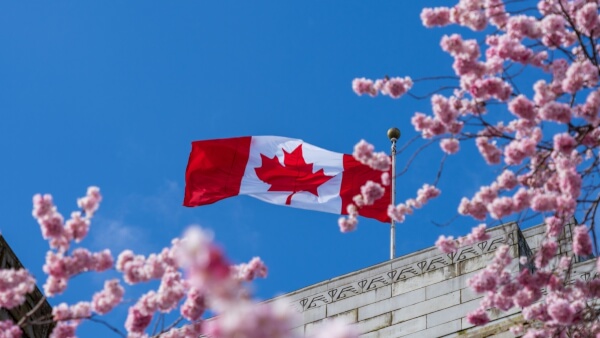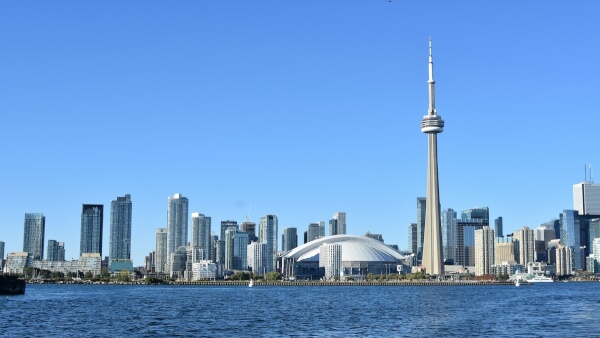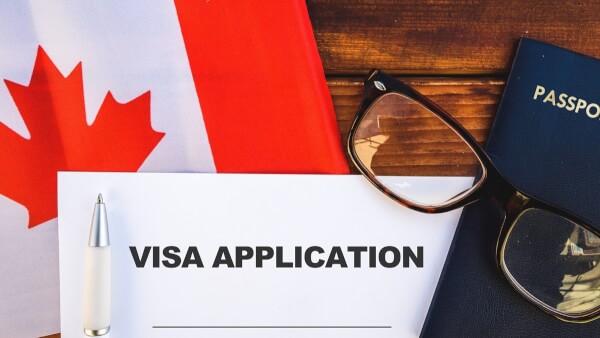Pros and cons of living in Canada vs the UK
Discover the pros and cons of living in Canada vs the UK in our handy guide, including tips on where to live in Canada and safety advice.

Thinking of moving to Canada from the UK and starting or growing your family there? If you're an expat planning to have a baby, it's important to understand what your healthcare options are and what they might cost. Canada is known for its strong public healthcare system, but knowing how pregnancy-related care is covered can help you make informed decisions about where to give birth.
So, how much does it cost to have a baby in Canada? In this guide, we’ll break down hospital fees, prenatal care and all the key expenses.
And if you need a cost-effective way to manage your money across borders, check out the Wise account from the money services provider Wise. It’s not a bank account but offers some similar features, and your money is safeguarded.
Over 12.8 million people worldwide use Wise to send, spend and convert money in 40+ currencies – for low, transparent fees* and no-markup exchange rates close to what you can see on Google. Plus, you’ll get dedicated support and volume discounts when sending large amounts.
Learn more about the Wise account ➡️
| Table of contents |
|---|
Canada has a public healthcare system called Medicare, which primarily provides medical services to permanent residents and citizens. However, other categories might also get coverage, such as asylum seekers, some temporary residents and refugees. Each province and territory manages its own healthcare, so coverage varies by location.¹
As an expat, your eligibility depends on your immigration status. In order to qualify for Medicare, you often need to hold a work or study permit and show the intention to reside in a certain territory or province for at least six months. Many newcomers use private insurance in the beginning.¹
Medicare provides free doctor visits, hospital care, diagnostic tests and prescription medication.¹
Here's a breakdown of the costs when having a baby in Canada:
| Stage | Cost range |
|---|---|
| Prenatal care² | Hospital appointment: $0 – $400+ Lab tests: $0 – $570+ CT scan: $0 – $2,600+ Outpatient hospital visit: $0 – $1,200 |
| IVF treatment³ | $0 – $20,000+ |
| Delivery² | $0 – $14,000+ |
| Postnatal care² | Private and semi-private room: $0 – $4,000+ a day Baby ward: $0 – $3,600+ a day Maternal clinic visit: $0 – $1,200+ |
| Baby room essentials⁵ | Diapers: $50+ a month Baby crib: $0 – $600+ Changing table: $0 – $400+ Baby clothes: $0 – $200+ |
| Baby transportation gear⁵ | Car seat: $0 – $500+ Baby stroller: $0 – $1,000+ |
| Food and nutrition essentials⁵ | Baby bottles: $0 – $10+ Baby formula: $9+ a tin |
Keep in mind that these are only estimates and it’s best to consult healthcare providers directly for the most up-to-date information.
If you don’t have Medicare or any other health insurance, you’ll incur some costs for prenatal care. The exact amount depends on whether you’re an uninsured resident or a non-resident, as well as the hospital you choose. For example, these are the prices at Queensway Carleton Hospital in Ottawa.
Prenatal care includes doctor visits, ultrasounds and tests, among other things. A hospital appointment for residents without insurance costs around $400, while a high-risk ultrasound costs as much as the Ontario Health Insurance Plan (OHIP) rate. Lab tests cost around $190 each and a CT scan comes at around $900.²
If you’re a non-resident, an outpatient hospital visit can cost up to $1,200. A high-risk ultrasound may be charged at three times the OHIP rate, while lab tests typically cost around $570 each. If you need a CT scan, expect to pay over $2,600.²
This hospital also offers special rates for pregnant international students covered by UHIP or CHIP health insurance plans. These rates are lower than the costs for uninsured non-residents but higher than those for uninsured residents.
An outpatient hospital appointment for international students costs close to $800, lab tests come at around $380 each and a high-risk ultrasound is twice the OHIP rate. A CT scan is $1,750.²
Ambulance charges come at $240 for all three categories of patients.²
The cost of IVF in Canada varies based on factors like the clinic, required treatments and individual circumstances. On average, an IVF cycle costs between $15,000 and $20,000.³
However, some provinces, including British Columbia, Ontario and Quebec, offer reimbursement programs or full coverage. These programs often have age limits such as 43 in Ontario and 41 in Quebec, so it is a good idea to check for any updates.³
Just like it is with prenatal care, if you don’t have Medicare or another type of health insurance, you’ll have some expenses related to childbirth. This is an example of prices in the Queensway Carleton Hospital.
If you're an uninsured resident, the cost of childbirth is around $4,700, whether it's a regular delivery or a C-section. On the other hand, non-residents have to pay around $14,000 for this procedure. If you’re an international student with one of the recognised insurance plans, you can expect to pay around $9,300.²
Day surgery fees can vary greatly, starting at around $1,100 for residents without insurance and going up to $43,500 for non-residents.²
Some hospitals will have you pay a labour and childbirth deposit, which covers everything from delivery to lab tests and your stay in the hospital. For example, at the Guelph General Hospital, the deposit is around $12,000 for non-residents.⁴
You may also have additional expenses after giving birth, such as hospital stay fees and visits to the maternal newborn clinic. Daily room charges can be quite high if you don’t have a good health insurance plan, including Medicare. If the hospital doesn’t use a deposit system to cover all expenses upfront, you’ll be billed separately for each service.
Uninsured Canadian residents can expect to pay around $1,550 for a semi-private room and around $1,600 for a private room. Daily ward charges for your baby are around $1,200 per day in the Queensway Carleton Hospital.²
Room fees for uninsured non-residents are over $4,000 for private and semi-private rooms per day, while international students will pay close to $3,000. The daily cost of the baby ward is over $3,600 for non-residents and around $2,400 for international students.²
A visit to the maternal newborn clinic costs as much as any other outpatient hospital visit - $400 for residents, $1,200 for non-residents and $800 for international students.²
Pregnancy and delivery are just the beginning when it comes to expenses. Once your baby arrives, there are various everyday items you'll need to budget for, including diapers, clothes, furniture and food.⁵
Some estimates suggest that raising a child in Canada costs between $10,000 and $15,000 per year. This includes essentials like diapers, which can run over $50 a month, a crib starting at around $200, and a car seat that can range from $90 to more than $500. Your total expenses will also vary depending on whether you choose to buy everything new or opt for second-hand items.⁵
Now that you know which costs to expect when having a baby in Canada, you might need a smart way to manage your money between the UK and Canada. The Wise account could be a perfect fit.
With the Wise account, you can send, spend, hold and convert money in 40+ currencies, for low, transparent fees* and mid-market exchange rates close to what you see on Google.
You can also get a Wise card for a one-time fee of £7 (or the Wise virtual card for £0) to spend like a local in 150+ countries. This clever card automatically converts your pounds to the local currency whenever you spend, only adding a tiny, upfront currency conversion fee* – or it’s fee-free if you already have the local currency in your Wise account.
| Here’s an overview of the main benefits of using Wise: |
|---|
|
**Capital at risk. In the UK, Interest and Stocks are provided by Wise Assets — this is the trading name of Wise Assets UK Ltd, a subsidiary of Wise. Wise Assets UK Ltd is authorised as an investment firm and regulated by the Financial Conduct Authority (FCA). Our FCA number is 839689. We do not give investment advice, and you may be subject to pay tax. If you're not sure, seek qualified advice. You can find more information about the funds on our website.
Sources used:
Sources last checked on date: 04-Apr-2025
*Please see terms of use and product availability for your region or visit Wise fees and pricing for the most up to date pricing and fee information.
This publication is provided for general information purposes and does not constitute legal, tax or other professional advice from Wise Payments Limited or its subsidiaries and its affiliates, and it is not intended as a substitute for obtaining advice from a financial advisor or any other professional.
We make no representations, warranties or guarantees, whether expressed or implied, that the content in the publication is accurate, complete or up to date.

Discover the pros and cons of living in Canada vs the UK in our handy guide, including tips on where to live in Canada and safety advice.

Learn how income tax in Canada works for foreigners in our guide for UK expats, overseas workers and digital nomads.

Find out everything you need to know about Canada RSU tax here in our essential guide, including current tax rates.

Read our helpful guide on how to transfer a UK pension to Canada, including the steps, fees and taxes involved.

Can I keep my Canadian bank account if I move abroad? Find out everything you need to know here in our handy guide.

Thinking of applying for a Canadian passport? Read our guide on the Canada citizenship by investment programme, including the requirements, costs and benefits.